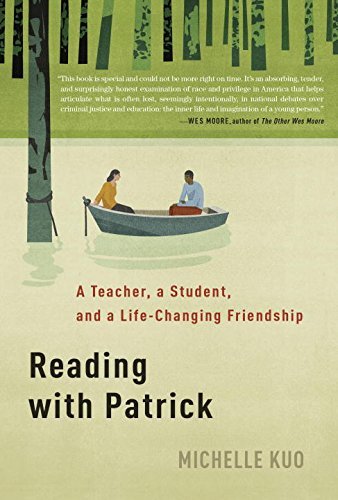What do you think?
Rate this book


296 pages, Hardcover
First published July 11, 2017
‘’I was learning that you can’t try to fill someone up with stories about the people you think he ought to contain. You first have to work with his sense of himself. Douglass, King, Malcolm and Obama were all black men who attained a measure of freedom through the act of writing about their lives. But my students had no frame strong enough to hold these great men.’’

It’s an intimate story about the failure of the education and criminal justice systems and the legacy of slavery; about how literature is for everyone, how books connect people, and the hope that with enough openness and generosity we can do the hard work of knowing each other and ourselves.